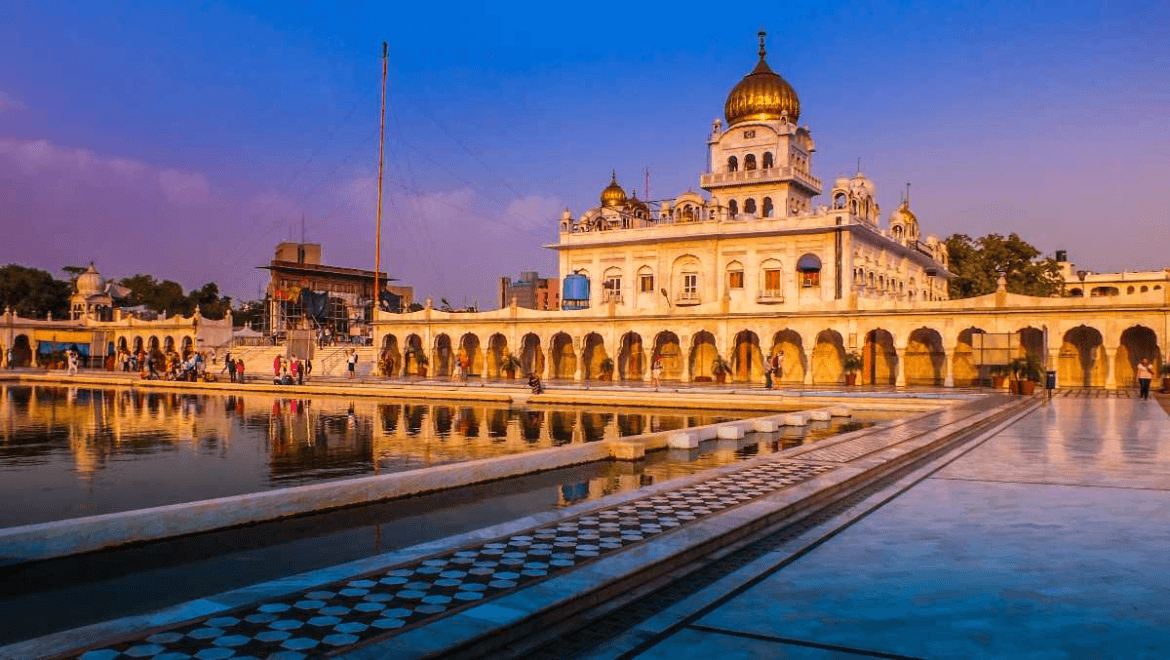AI Generated Summary
- At the heart of Sikhism lies the belief in the equality of all human beings, the pursuit of spiritual enlightenment, and the commitment to sewa (selfless service) for the betterment of society.
- By promoting a greater understanding of Sikh teachings, the community can ensure that the message of peace and unity prevails within and outside the Gurdwara walls.
- Gurdwaras serve as physical embodiments of these principles, where individuals can come together to engage in communal worship, engage in acts of charity, and find solace and guidance from the Guru Granth Sahib.
Gurdwaras, the sacred places of worship for Sikhs, hold deep significance as centers of spirituality, community, and the teachings of the revered Guru Granth Sahib. These holy spaces have historically served as beacons of peace, unity, and compassion, embodying the teachings of Sikh Gurus.
However, the glorification of terrorists like Hardeep Singh Nijjar, Parmjit Singh Panjwar, and the likes sparks concerns about the sanctity and purpose of Gurdwaras. It is imperative to reiterate that Gurdwaras should remain devoted solely to spiritual practices while denouncing acts that contradict the teachings of Sikh Gurus.
If this isn't 'baedbi,' then what is?
— Navdeep Singh (@Navdeep_UK) June 21, 2024
A larger-than-life portrait of Hardeep Singh Nijjar was placed behind Sri Guru Granth Sahib Ji in Surrey
The Gurdwara resounded with chants of 'Khalistan Zindabad' & violent speeches.
They have transformed the 'Guru Ghar' into a banquet hall pic.twitter.com/AUOi95IAoH
At the heart of Sikhism lies the belief in the equality of all human beings, the pursuit of spiritual enlightenment, and the commitment to sewa (selfless service) for the betterment of society. Gurdwaras serve as physical embodiments of these principles, where individuals can come together to engage in communal worship, engage in acts of charity, and find solace and guidance from the Guru Granth Sahib.
The Guru Granth Sahib, the eternal Guru of the Sikhs, espouses messages of love, peace, harmony, and social justice. It emphasizes the importance of treating all individuals with respect, irrespective of their religion, caste, or creed. The Sikh Gurus themselves led by example, promoting unity and peaceful coexistence even in the face of adversity. It is within this context that the glorification of individuals associated with violence, such as Parmjit Singh Panjwar, stands in direct opposition to the core values of Sikhism.
Gurdwaras should remain sanctuaries of spirituality, devoid of any political or extremist agenda. They should serve as places where Sikhs and non-Sikhs alike can seek solace, gain spiritual wisdom, and learn about the rich heritage and traditions of Sikhism. By upholding the sanctity of Gurdwaras, the community can ensure that these sacred spaces continue to foster harmony, compassion, and a sense of collective well-being.
It is vital for the Sikh community to prioritize education and dialogue. Gurdwara committees, religious leaders, and community members should actively engage in discussions about Sikh teachings, emphasizing the values of peace, inclusivity, and social harmony. By fostering an environment that encourages open conversations and discourages divisive ideologies, the community can strengthen its commitment to the principles propagated by the Sikh Gurus.
Additionally, the management of Gurdwaras should be vigilant in monitoring the activities and displays within their premises. Exhibitions and displays should focus on educating visitors about the principles of Sikhism, its rich history, and the positive contributions of Sikhs to society. By promoting a greater understanding of Sikh teachings, the community can ensure that the message of peace and unity prevails within and outside the Gurdwara walls.
Building Interfaith Relationships
Sikhism has long been an advocate for interfaith dialogue and cooperation. Gurdwaras should actively engage with other religious and community organizations to foster connections and promote shared values. By participating in interfaith events, hosting discussions, and collaborating on charitable initiatives, Gurdwaras can exemplify the spirit of unity and harmony that Sikhism espouses.




